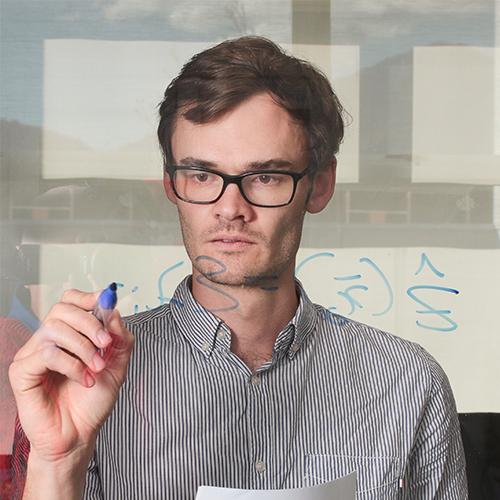
Tobias Louw
Country (Nationality)
South Africa
Grantee Title
Project - Knowledge loops for the containment of drug-resistance: driving change by correlating risk and infections
Grantee Description
Tobi Louw is currently a Senior Lecturer and the Undergraduate Programme Coordinator at the Department of Process Engineering at Stellenbosch University, South Africa. His interest in the mathematical modelling and analysis of biological processes starting during his PhD at the Department of Chemical and Biomolecular Engineering at the University of Nebraska-Lincoln, where he simulated the mechanotransduction of ultrasonic stimulation on cartilage cells in the context of tissue engineering.
Tobi currently focusses on the use of mathematical modelling and machine learning techniques to develop a deeper understanding of various dynamic processes, ranging from microbial ecology to the mining industry. He is particularly interested in the combination of fundamental mathematical descriptions and statistical predictions in a hybrid modelling approach. He is currently supervising or co-supervising two post-doctoral research fellows, three PhD students and ten Masters students.
Project - Knowledge loops for the containment of drug-resistance: driving change by correlating risk and infections
The aim of the project is to use advanced statistical and machine learning techniques to interrogate the vast amount of existing data relating to antimicrobial resistance (AMR). It is of importance to identify key risk factors driving clinical cases of resistant infections in a One Health framework.
The project relies on a network of researchers across Africa generating relevant data, which implies that the data will come in many different forms and wildly varying quality. This is seen as part of the key research question: instead of assessing the data from a binary perspective (i.e. “Yes, a correlation exists” or “No, there is no correlation”), we will ask “What is the most we can possibly get out of the data, and what is the most cost-effective way to improve prediction?” AMR surveillance will always be limited in resource constrained settings; our research will assess the potential of generated data and identify lowest hanging fruit within these constraints.
